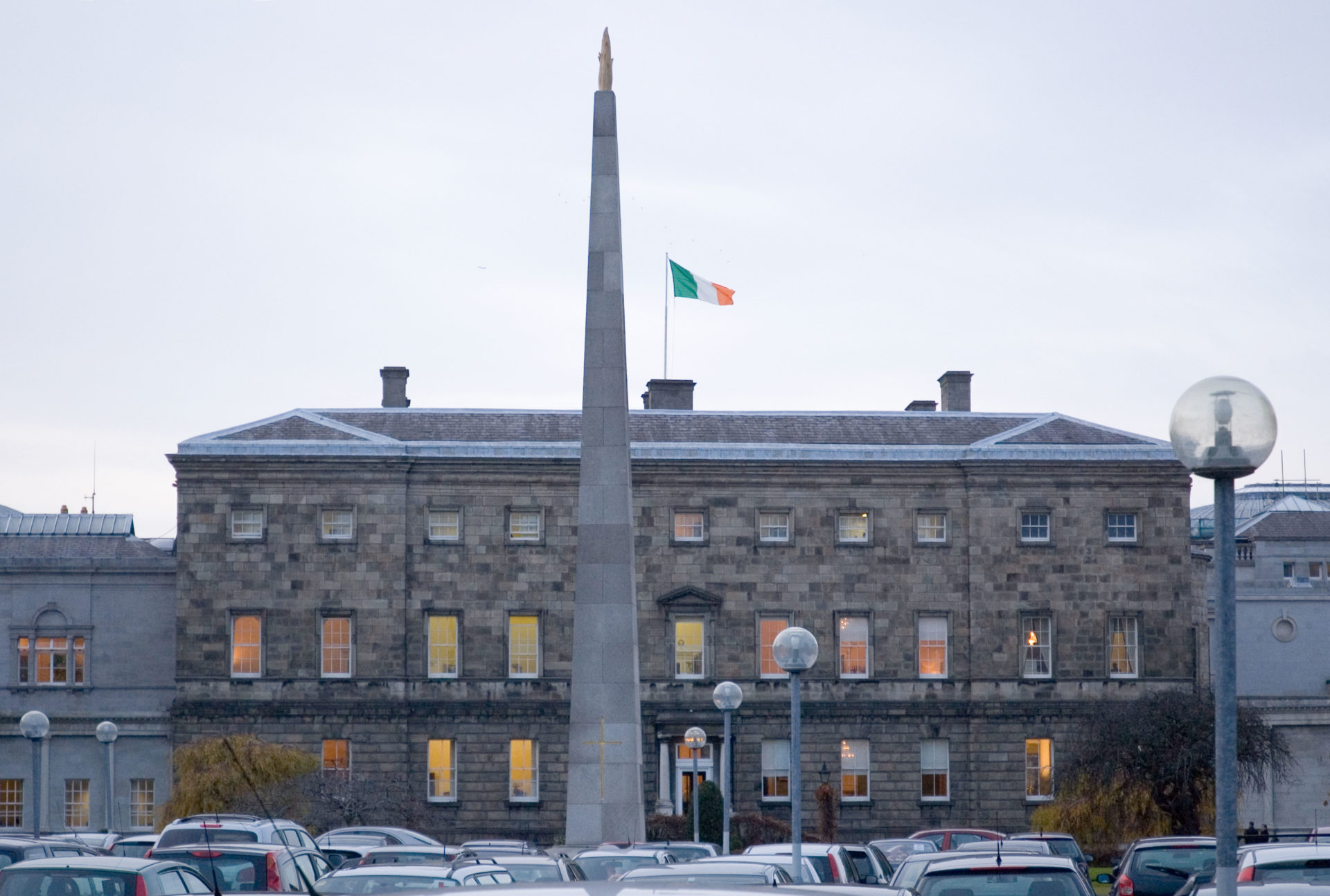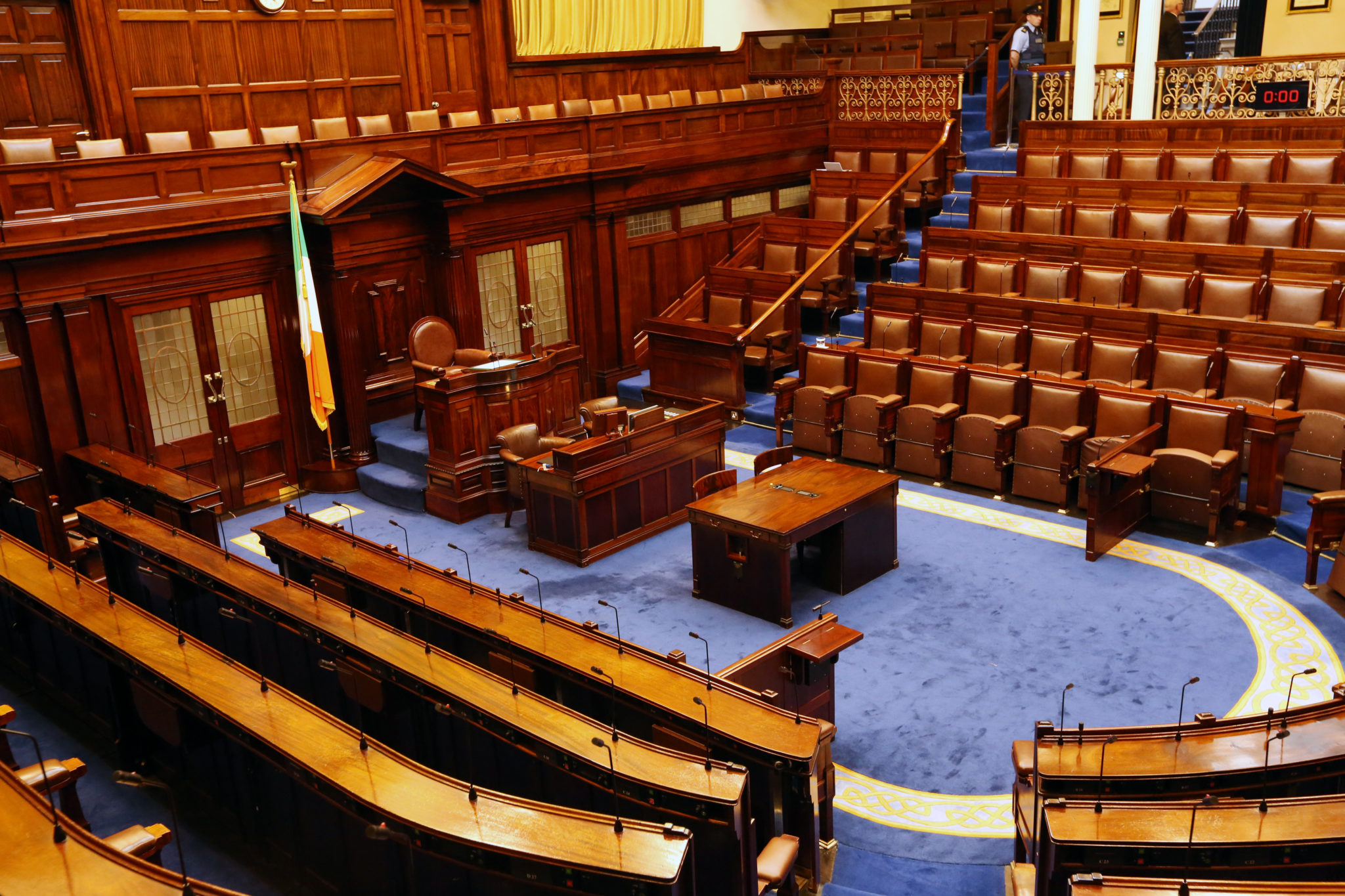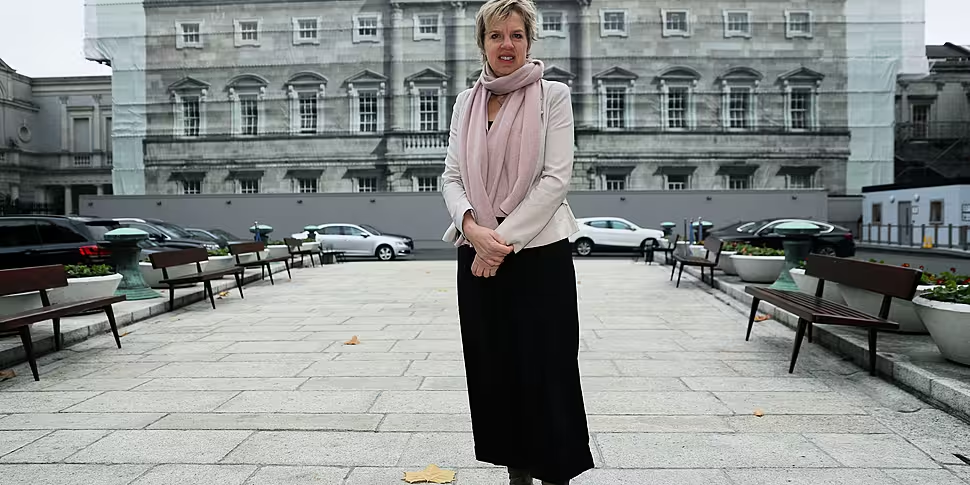The lack of women TDs means Irish democracy is “unfinished”, Labour leader Ivana Bacik has said.
Close to 40% of Seanad Éireann members are women but in Dáil Éireann just under a quarter of TDs are women.
Following the 2020 election, Ireland was ranked 101st in the world for female representation and Deputy Bacik described the current situation as “pretty awful”.
“Having said that, the quotas that we introduced in 2012 did help,” she told On The Record with Gavan Reilly.
“When I was first elected to the Seanad in 2007, it was appalling; it was less than 15% of TDs were women at that point.
“So, it was far worse.”
 A0M3KG Leinster House in Dublin Ireland. Image shot 2014. Exact date unknown.
A0M3KG Leinster House in Dublin Ireland. Image shot 2014. Exact date unknown.There are now 37 women TDs out of a possible 160 and Deputy Bacik has a number of theories why men are still overwhelmingly more likely to be elected.
“I wrote a report for the Justice Committee in 2009 - which paved the way for the quotas,” she said.
“We identified five barriers to women’s participation in politics; lack of cash, lack of confidence, lack of childcare, an old boys’ culture and candidate selection procedures which were holding women back.”
 The Dáil Chamber at Leinster House. Image: Laura Hutton/Photocall Ireland
The Dáil Chamber at Leinster House. Image: Laura Hutton/Photocall IrelandWhile she believes the quota system has helped, Deputy Bacik believes there are other things the Oireachtas could do better.
“We still need to do a lot on childcare,” she said.
“There is an Oireachtas creche but it’s somewhat restrictive.
“We do have a women’s caucus now that seeks to challenge the old boys’ culture and I’m proud to be Vice Chair of that.
“There’s a lot of things we’re doing through the caucus to give women confidence.”
Article 41.2 of the Constitution is often criticised by feminists as sexist and the Labour Party believes a referendum should be held on its removal.
“We do need to see constitutional change because our Constitution still has cultural expectations that women will have, in the words of the Constitution, ‘A life within the home’, Deputy Bacik said.
"So, that’s very outdated and that needs to change.”
Last year, a cross party committee recommended a referendum be held on its removal in 2023.
Main image: Ivana Bacik on the plinth at Leinster House in Dublin.









